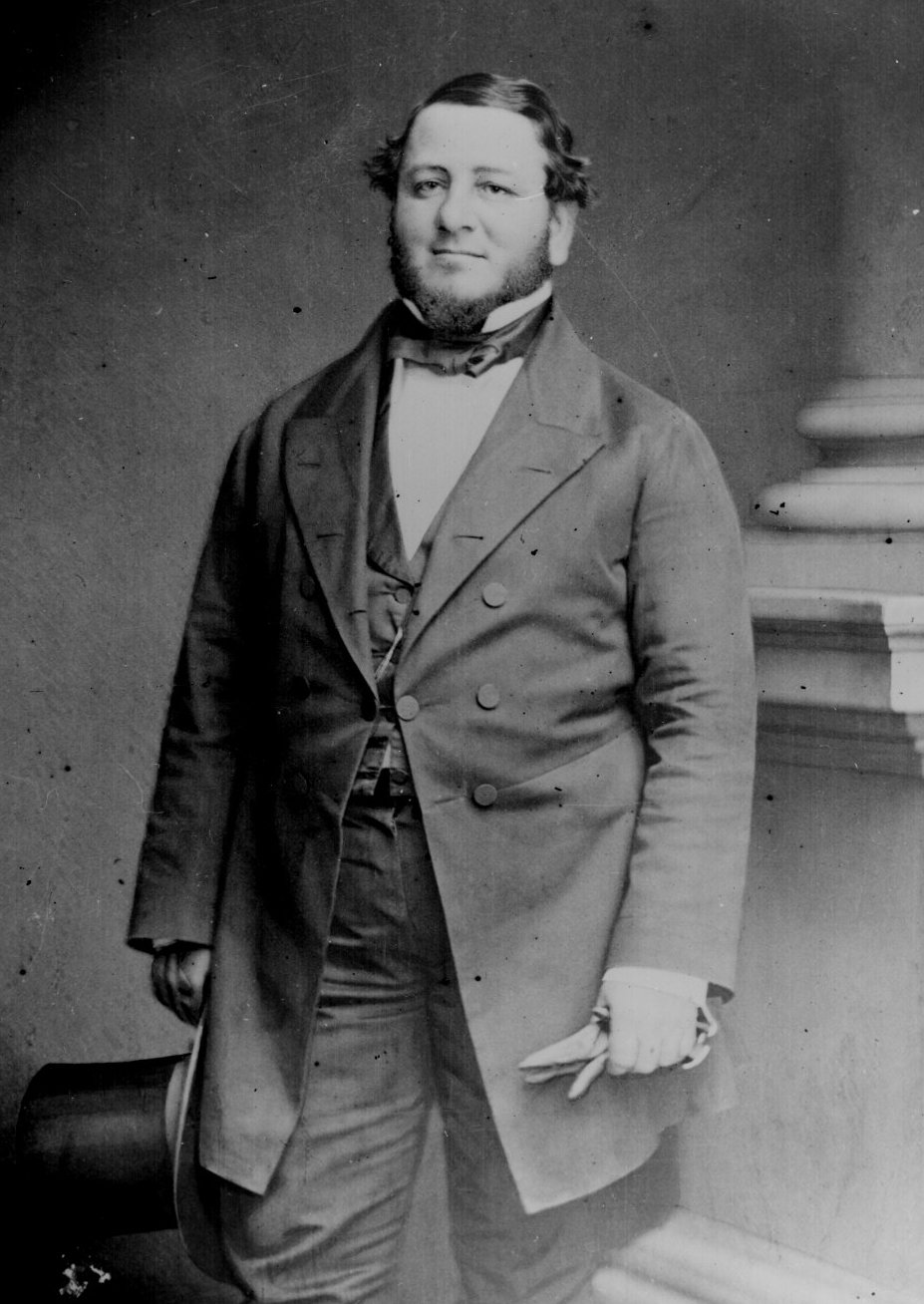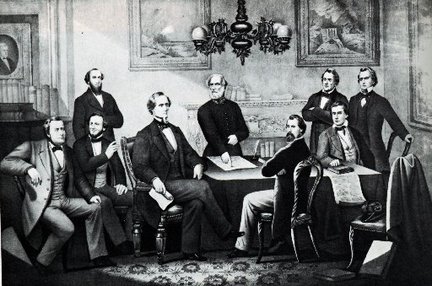- Judah Philip Benjamin -
Cabinet member of the government of the Confederate States of America
Born August 6, 1811 He was a British-American politician and lawyer, who served as a representative in the Louisiana State Legislature, as U.S. Senator for Louisiana, in three successive cabinet posts in the government of the Confederate States of America, and as a distinguished barrister and Queen's Counsel in England. He was the second Jew (after David L. Yulee of Florida) to serve as a U.S. Senator and the first in the cabinet of a North American government, and had the opportunity to be the first Jewish nominee to the U.S. Supreme Court, though he declined the position.
Davis appointed Benjamin to be the first Attorney General of the Confederacy on February 25, 1861, remarking later that he chose him for the position because he "had a very high reputation as a lawyer, and my acquaintance with him in the Senate had impressed me with the lucidity of his intellect, his systematic habits, and capacity for labor."
In September of the same year, he became the acting Secretary of War, and in November he was confirmed in the post. He became a lightning rod for popular discontent with the Confederacy's military situation, and came to quarrel particularly with the Confederate Generals P.G.T. Beauregard and Stonewall Jackson. The criticism came to a head over the loss of Roanoke Island to the Union without a fight in February 1862. Rather than publicly reveal the pressing shortage of military manpower that had led to the decision not to defend Roanoke, he accepted Congressional censure for the action without protest and resigned his position. As a reward for his loyalty, Davis appointed him Secretary of State in March 1862.
Benjamin's foremost goal as Secretary of State was to draw the United Kingdom into the war on the side of the Confederacy. In 1864, as the South's military position became increasingly desperate, he came to publicly advocate a plan where any slave who was willing to bear arms for the Confederacy would be emancipated and inducted into the military; this would have the dual effect of removing the greatest obstacle in British public opinion to an alliance with the Confederacy, popular aversion to slavery, and easing the shortage of soldiers that crippled the South's military efforts. Robert E. Lee came to be a proponent of the scheme as well, but it faced stiff opposition from traditionalists, and was never put into effect before the Confederacy's collapse.
Correct Responces:
Bill Chisolm
- Links to More information -
"Biography of Judah Philip Benjamin"
|



